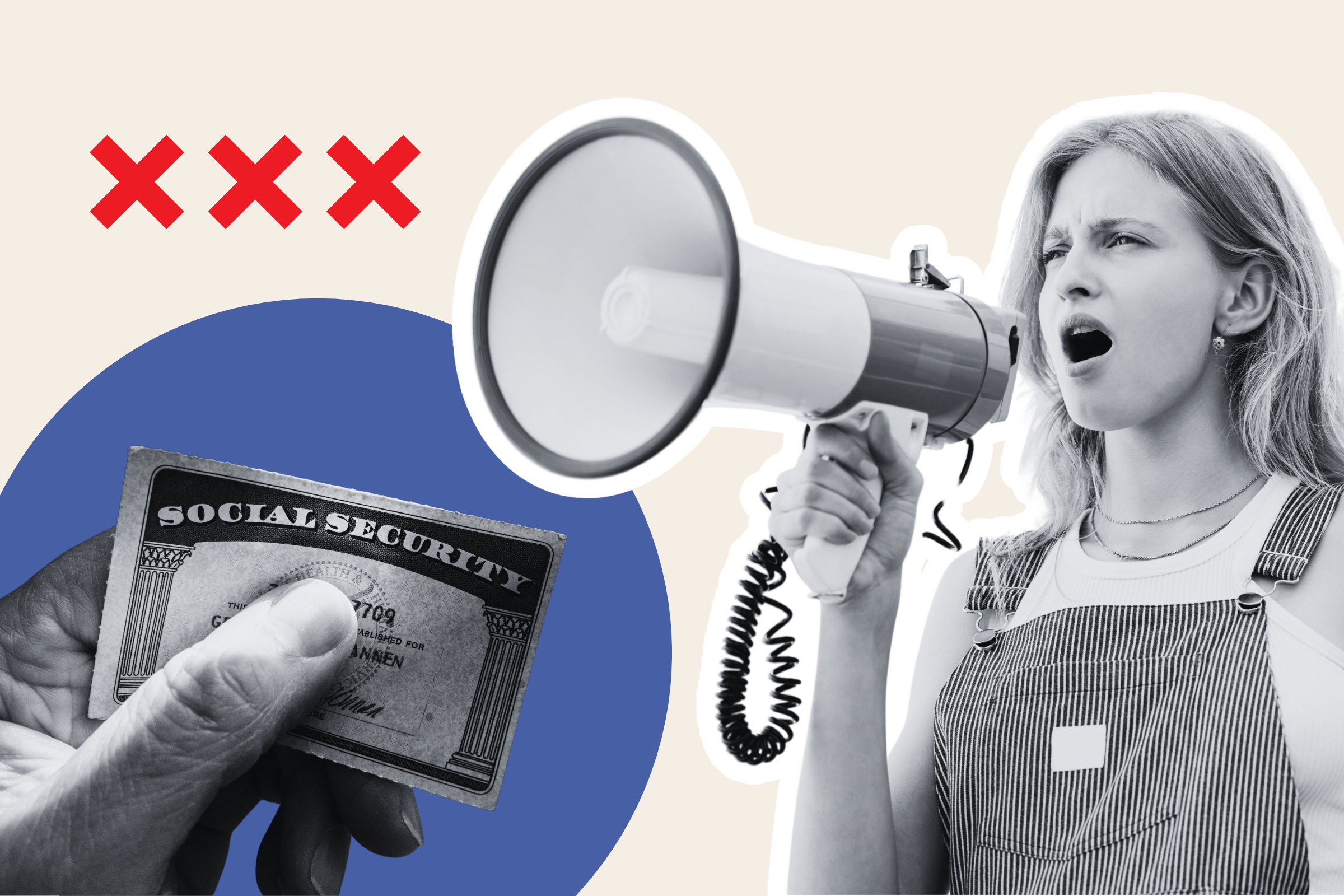Millennials, Gen X and Gen Z say the system needs reform, an exclusive Newsweek poll found, amid fears the benefits won’t exist when they come to retire
Younger generations in the U.S., including millennials and Gen Zers, are much more likely to believe that the Social Security system needs reforming than those in their 60s and 70s, according to a recent survey conducted by Redfield & Wilton Strategies on behalf of Newsweek.
…
Some 40 percent of respondents said they believe that the Social Security program currently pays out more to retirees than it is receiving in Social Security tax payments, while 26 percent disagreed with this statement.
Gen Zers (ages 18-26), millennials (ages 27-42) and Gen Xers (ages 43-58) were more likely than boomers (59 and older) to think that Social Security should be reformed.



Easiest and fairest way to fix this is to stop exempting high earners and investment income from SS tax.
Just for those unaware - the social security pay-in is a percentage of your income, but the maximum amount of your income subject to social security withholding is capped at a fixed level that increases annually. The last time I looked, the cutoff was somewhere around $138k. So if your cumulative income for the year hits $138k in, say, June, you are no longer subject to SS withholding and your weekly paycheck goes up by a couple of hundred dollars or so as a result. Most people don’t hit this amount, but enough do that were the cap eliminated, it would increase solvency and possibly allow for an increase in payouts.
On the flip side, your payout from social security is proportional to what your pay in was. It’s still capped, and it’s not really enough to live on. Those who hit the cap typically have multiple other sources of savings for retirement and could easily contribute more to the national program.
It’s 168k now for those interested: https://tax.thomsonreuters.com/news/social-security-wage-base-increases-to-168600-in-2024/
The tax cap exists because there is a limit to how much you can get paid out.
Yes. That is what I said. I think it’s not a valid justification.
By way of analogy, let’s say we move to a point of tuition-free public college, which I also support. My taxes which go to support those colleges would be far higher than those of most people, but my kids, were I to have any, would receive the exact same benefit from a financial standpoint as people whose taxes contributed far less to none.
My property taxes are somewhere around $25k per year. They go largely to support a public school system which, as a person without children, I receive zero direct benefit from. Should I get a lower property tax because I am a person without kids despite having a higher income and higher valued property? Or should I be taxed relative to my ability to support the community? Should a family that makes a quarter of what I do but have four kids pay more than me?
This doesn’t equate, if you get a proportion based on what you’ve put in, your kids would get a larger amount vs the poorer family. Assuming we’re equating to SS.
Would you be happy if you put in 30k every year for your life and you’re only getting 15k back every year during retirement?
Personally I think that the family of 4 that makes a quarter should probably not be having kids… it’s not good for the kid or the parent to be in that situation. I know because that was my childhood. Shit left quite a few scars well into adulthood.
That’s not what they’re saying. They’re arguing to remove the contribution cap but not the payout cap, similar to various other public services: rich people pay way more in taxes for public schools despite receiving approximately the same benefits. It’s a form of wealth redistribution, and conveniently would solve the social security funding issue.
I’m sorry but this disproportionately affects W2 workers who live in HCOL areas. I’ve paid into social security since I started working in HS. I’m now a 34 year old, and am expecting nothing during my retirement years as I’ve been told. Naturally I’m saving up with a 401k and Roth IRA, and you’re saying it’s okay to drain more from me because I am planning on there being nothing left for me?
I don’t agree with that. Why can’t we do a wealth tax first and see where we are, why must we hit W2 folks over the head every time.
Yeah, it disproportionately affects W2 workers making over 140k per year or so. Thats fine. That’s the way things are supposed to be.
It’s not hitting “W2 folks” to extend withholding beyond $140k. It’s doing the appropriate thing and not giving them a free ride. If you want to additionally hit up the people who are living off of the various ways you can monetize wealth, that’s fine too. I’m in favor of a wealth tax. I think that’s also fair. I think Warren proposed a 2% tax on holdings over $4M. I support that. That’s still different than SS withholding.
Let’s say you’re making a whopping $150k. That means that you’ll pay (and I am probably overestimating) a few hundred dollars a year into the SS fund. It’s not a noticeable amount, whether you live in a HCOL area or not. It’s a nice dinner, stretched out over 365 days worth of payments.
It’s a trivial amount of money for an individual, which when spread over the population of the country, can make the difference to the majority of the population. I’m very much down with that.
As one of those high earners, yes. Absolutely. I’d even say do it like Medicare and above a certain income you pay a slightly higher rate that normal too.